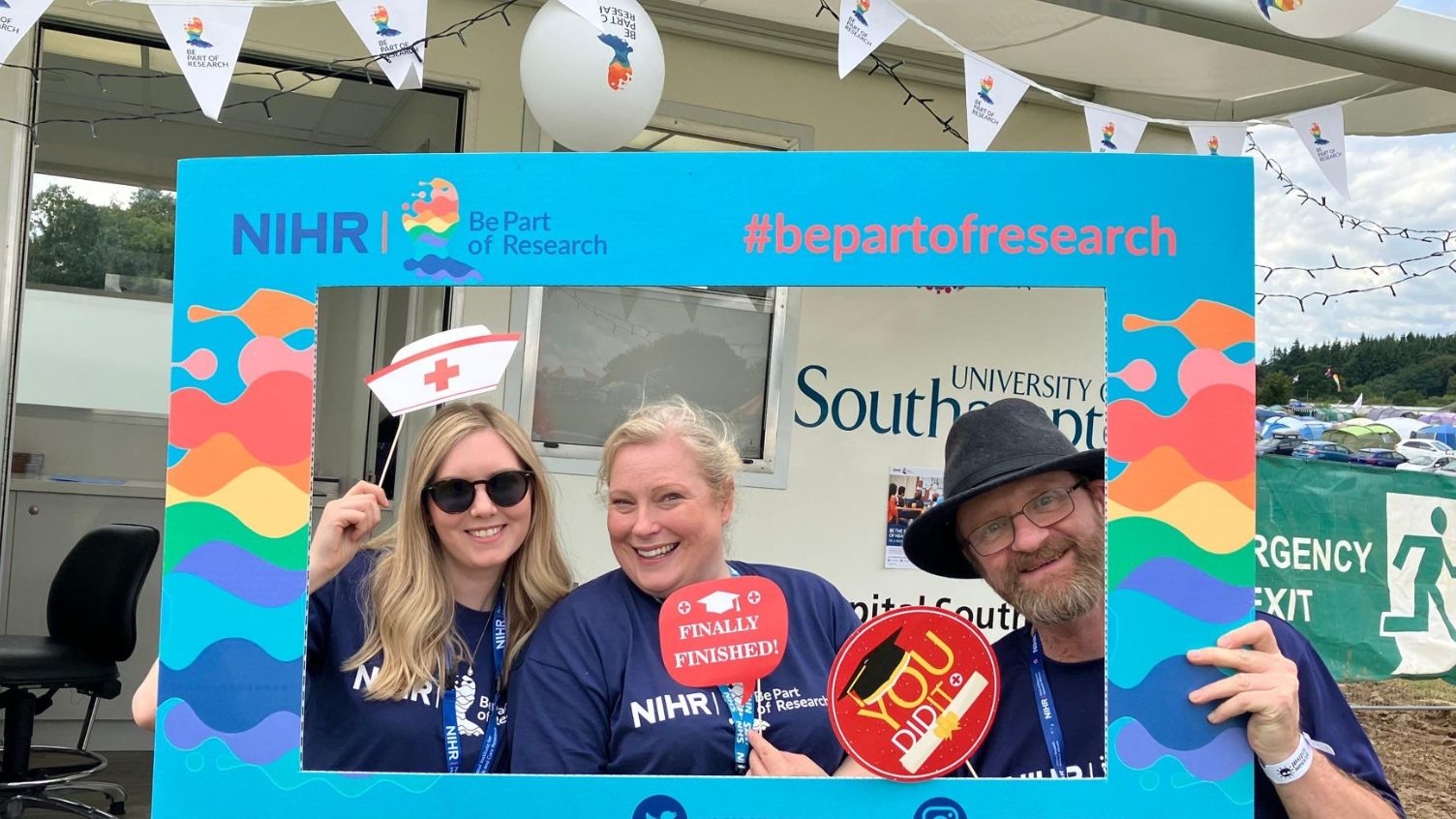Laurence is giving back to the NHS by taking part in COVID-19 research
- 3 June 2021
- 3 min read
Laurence Penn, 55 from Worthing, is participating in a study that is using smartwatch technology to observe the recovery of patients who were hospitalised in critical care with COVID-19.
Laurence Penn tells CRN KSS why he signed up to take part in a COVID-19 research study.
Laurence Penn, 55 from Worthing, is participating in a study that is using smartwatch technology to observe the recovery of patients who were hospitalised in critical care with COVID-19. Laurence tells us why he signed up to take part in a COVID-19 research study.
Laurence said: "I became involved with research as a result of being ill with COVID-19 in March 2020. I spent 29 days in a coma and a total of 47 days in Worthing Hospital. While I was in ICU, I was enrolled in two COVID-19 trials - RECOVERY and GenOMICC. My wife signed the consent forms in my absence as I was incubated on a ventilator.
"I was delighted that I had been on a clinical trial because I would have wanted the doctors to try as many drugs as it took to keep me alive.
“As I was leaving the hospital I was asked if I would take part in the COVID-OR trial. I felt so grateful and humbled by what I had been through that I wanted to give something back to those who had treated me and joining this trial looked like a good way to do that.”
The COVID-OR (Observation, Risk and Recovery. An observational study exploring risk assessment and recovery from COVID-19 infection in hospitalised patients) study is being led by Dr Luke Hodgson, a Critical Care and Respiratory consultant at Worthing Hospital, part of University Hospitals Sussex, and a multi-disciplinary team (MDT) including doctors, nurses and physiotherapists. The study is being run at eight sites across Kent, Surrey and Sussex.
Dr Hodgson said: "During the first wave of COVID-19, we wanted to carry out local observational work at our hospital to see how patients who had been admitted to critical care, recovered from severe COVID-19. Due to social distancing, we introduced a new digitally enabled critical care rehabilitation pathway, using wearable technology (Fitbits) to see if the technology can help with physical recovery.
"At the point of discharge patients are given a Fitbit smartwatch and individually tailored exercise plans, informed by objective outcome measures such as shuttle walk and 'sit to stand' tests. We also record quality of life, anxiety and depression questionnaires. The smartwatch data (including step counts, resting heart rate, sedentary minutes) is then reviewed at monthly MDT meetings where we can then review individual patients' recovery and review and titrate their exercise plans."
The COVID-OR study has met monthly to check progress at each of the hospital sites and Laurence has attended and contributed to this process.
Laurence continued: "I now wear a Fitbit which tracks my activity and heartbeat to measure effects of long COVID. I have been on the trial for over a year. The research team is interested in how I became so ill, as I was a fit and healthy person. The Fitbit has enabled them to track issues with my heart, when I first came out of hospital I had heart palpitations and an irregular heartbeat."
Laurence has also supported research by being a public member of a NIHR panel that assessed which studies should be classed as urgent public health COVID-19 studies.
Laurence continued: "There were many acronyms to learn. It has been fascinating and I have enjoyed being involved.
"Before the pandemic, I was not aware of health research because I was healthy and had not spent time at a hospital or even my local health centre. I was busy running a business where I travelled the world. I had a realisation that if so much research had not been done before, I may not have had the help I received. I am now a big advocate for research. The more people who go on trials, the better, as research will help everyone.
"I'm currently going through the induction process to be a Research Champion at Worthing Hospital and I'm looking forward to meeting other Research Champions in the region when it is safe to do so, to talk about how to promote research taking place and talking to people about why they should consider taking part in a study."


